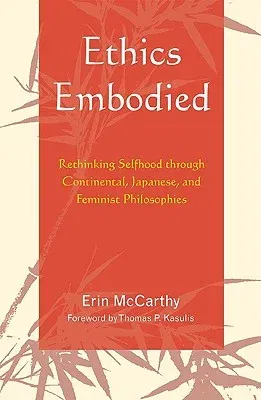Erin McCarthy
(Author)Ethics Embodied: Rethinking Selfhood through Continental, Japanese, and Feminist PhilosophiesHardcover, 17 July 2010

Qty
1
Turbo
Ships in 2 - 3 days
In Stock
Free Delivery
Cash on Delivery
15 Days
Free Returns
Secure Checkout

Print Length
134 pages
Language
English
Publisher
Lexington Books
Date Published
17 Jul 2010
ISBN-10
0739120492
ISBN-13
9780739120491
Description
Product Details
Author:
Book Format:
Hardcover
Country of Origin:
US
Date Published:
17 July 2010
Dimensions:
23.11 x
15.75 x
1.52 cm
ISBN-10:
0739120492
ISBN-13:
9780739120491
Language:
English
Location:
Lanham, MD
Pages:
134
Publisher:
Weight:
340.19 gm